
Climate records tumble as Switzerland swelters in heatwave
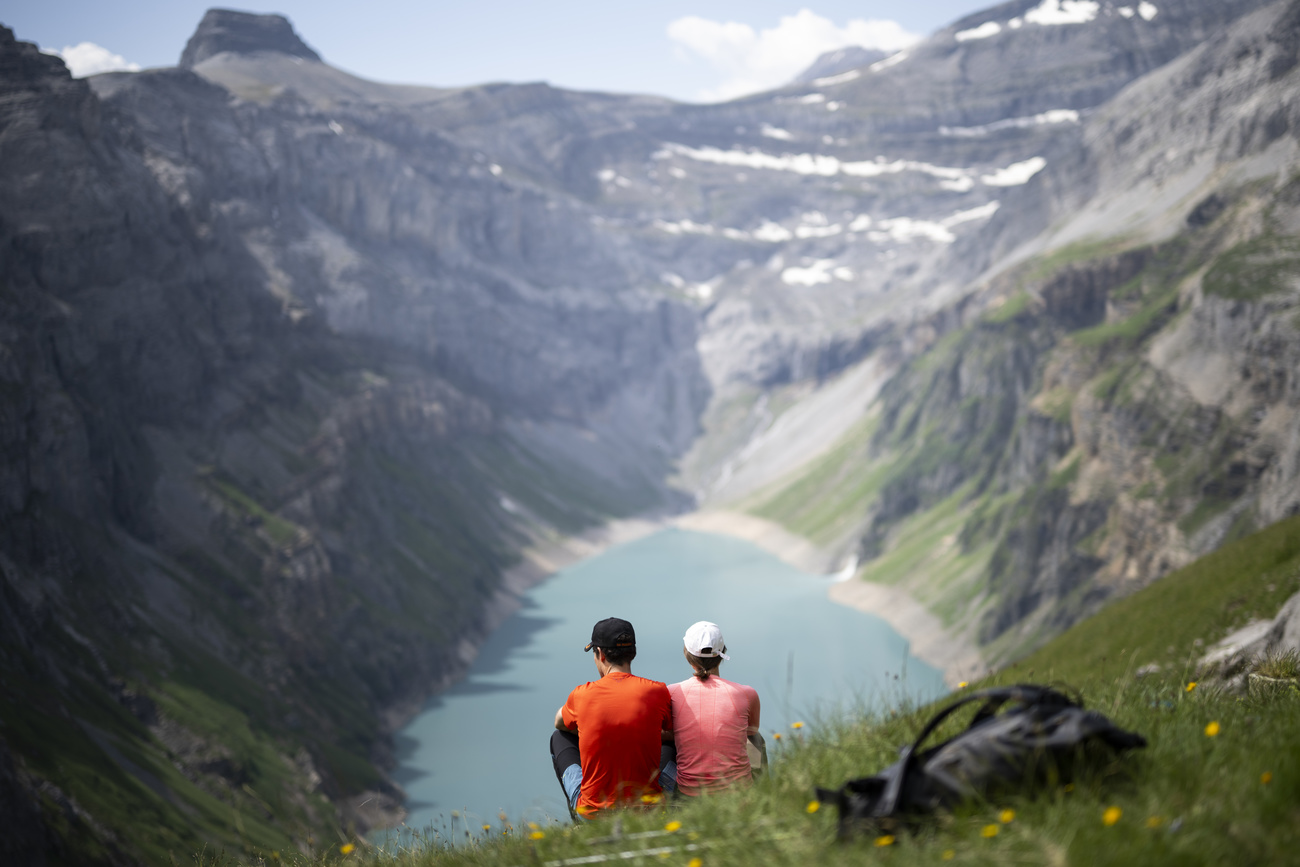
The ferocious late-summer heatwave continues to batter continental Europe, creating new temperature records in Switzerland and raising concerns among glaciologists about the country’s 1,400 ice giants.
The Alpine nation is often considered an ideal place to escape the summer heat. But towards the end of summer exceptional high pressure across Europe centred over the Alps, accompanied by warm air from southwestern Europe and North Africa, has created a heat dome that is pushing temperatures to record or near-record levels.
Swiss weather stations have been registering new maximum temperatures for the second half of August, but heat records are also being set high above our heads.
On Monday Swiss weather service MeteoSwiss reportedExternal link that the zero-degree line – the altitude at which the temperature falls below freezing – was measured at 5,298 metres overnight. This new record surpassed the previous high of 5,184 metres that was set in July last year.
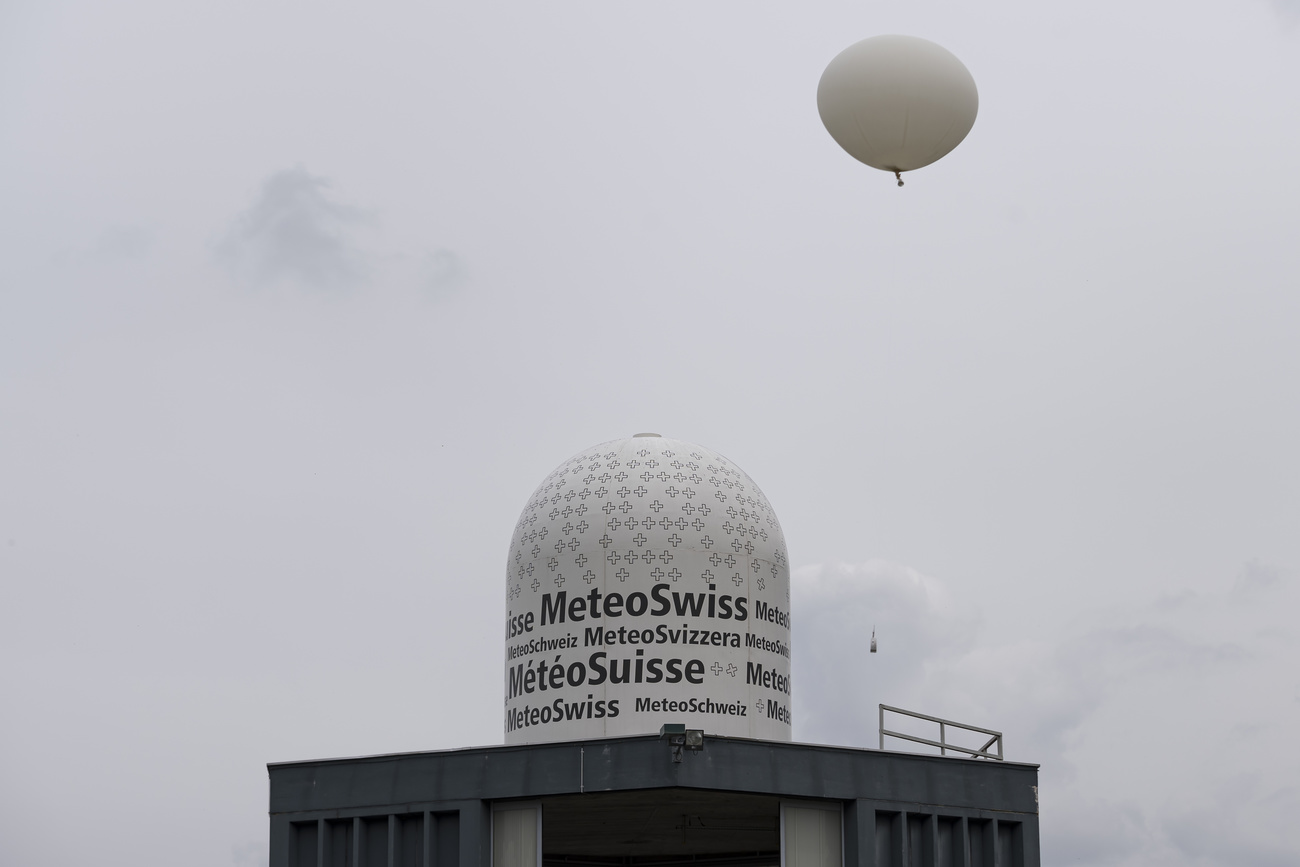
More
Heatwave pushes ‘zero-degree’ line to record height in Switzerland
What is the zero-degree limit and why is it important?
The zero-degree limit is a key meteorological indicator particularly in mountainous regions, as it “affects vegetation, the snow line and the water cycle, and so has a considerable impact on the habitats of humans, animals and plants alike,” saysExternal link MeteoSwiss.
In recent decades human-driven climate change has caused the altitude of the zero-degree line to “rise significantly in every season”, saysExternal link MeteoSwiss, noting that successive records for the indicator had all been set in the past 10 years.
Why are Swiss glaciologists worried about this new zero-degree record?
Glaciologists say the new zero-degree record at altitude is an ominous sign. Matthias Huss, the head of Glacier Monitoring Switzerland (GLAMOS), called it a “change of regime” and “another blow for glaciers” that have already been hit earlier this year.
“It’s very clear the glaciers are melting even faster with this heat at high altitude,” he told Swiss public radio, RTS. “The glaciers were already in a very poor state compared with other years. There was already a lot of melting in June and July, and now this heat is adding to the loss.”
Last year, Alpine glaciers broke records for melting due to a combination of low winter snow cover, the arrival of Saharan dust in March, and heatwaves between May and early September. Swiss glaciers lost about 6% of their ice volume between 2021 and 2022, compared to one-third between 2001 and 2022.
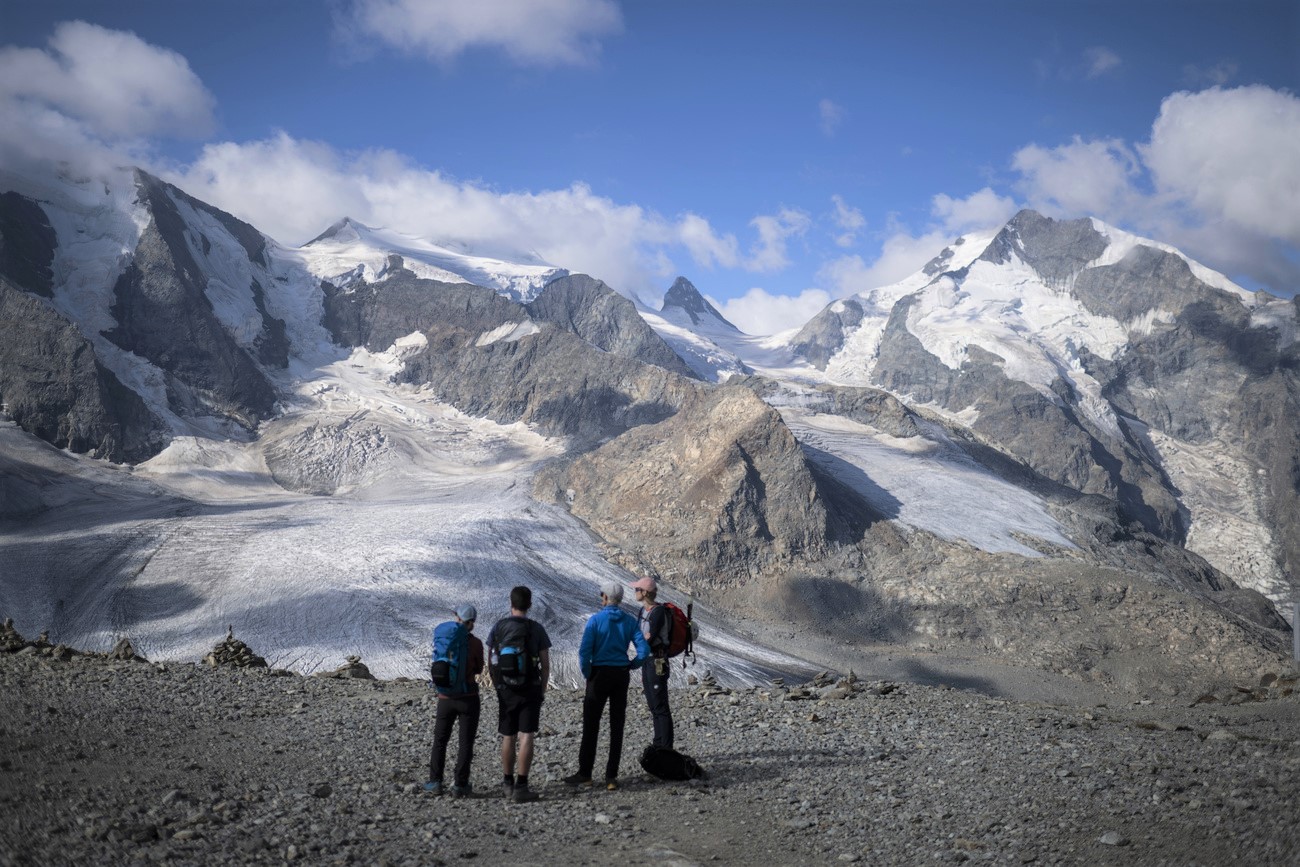
More
For Swiss glaciers, 2022 was a ‘disastrous’ year
“With a zero-degree isotherm far above 5,000 metres, all glaciers in the Alps are exposed to melt — up to their highest altitudes,” Daniel Farinotti, a glaciologist at the federal technology institute ETH Zurich, told Associated Press. “Such events are rare and detrimental to the glaciers’ health, as they live from snow being accumulated at high altitudes.”
“If such conditions persist in the longer term, glaciers are set to be lost irreversibly,” he added.
Huss is equally pessimistic about the long-term scenario if this trend persists.
“In 50 years when we no longer have glaciers, which is a pretty likely scenario, we’ll have much less water, especially in hot periods like this. And that will be a problem for water supply in the lowlands and irrigation but also for ecosystems and hydropower,” he said.
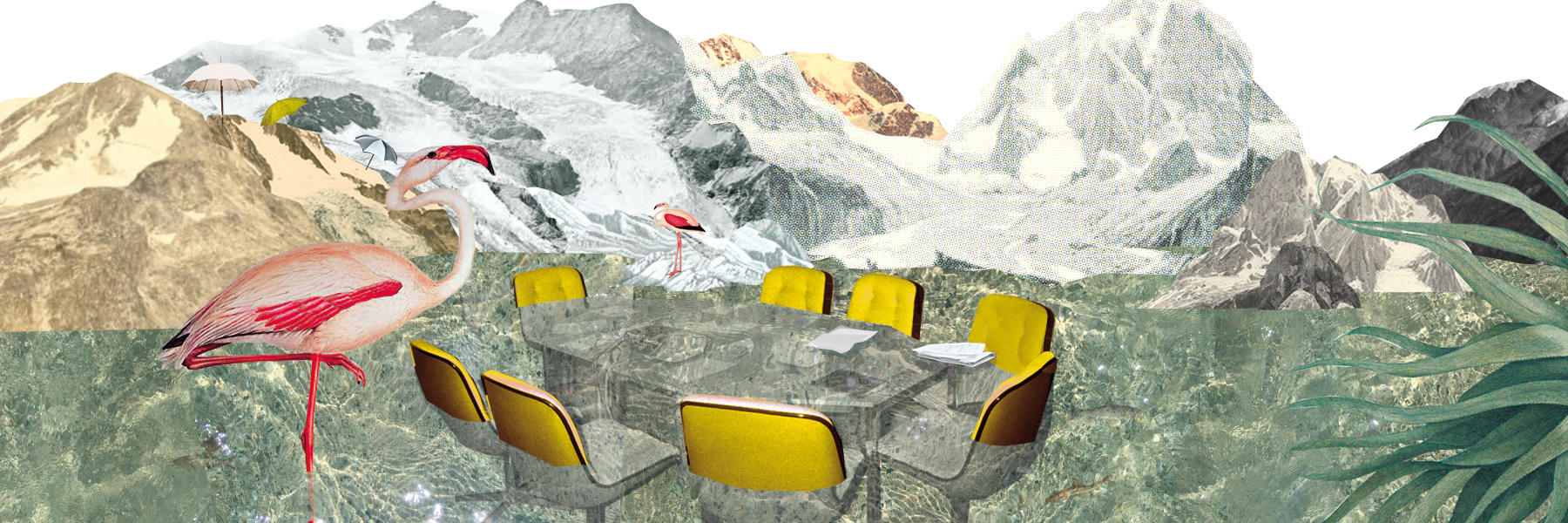
More
Why melting glaciers affect us all
What other temperature records have been smashed during the current heatwave?
After a cool and wet summer, Switzerland has been experiencing blistering hot weather and tropical nights over the past week. Temperatures climbed to 33-35°C across many parts of the country on Sunday afternoon. On Tuesday the mercury broke the annual record when it reached 37°C in Sion, canton Valais.
“This episode of extremely hot weather that comes during the last ten days of August is totally unprecedented for Switzerland,” Frédéric Glassey, director of meteorology at MeteoNews, told RTS on Monday.
Over the weekend new maximum temperature records for the second half of August were set at weather stations across Switzerland.
Yann Roulet manages Switzerland’s highest mountain hut, the Mönchsjochhütte, not far from the Jungfraujoch peak in the Bernese Alps.
“I’ve experienced high temperatures up here in the summer, but it’s been extreme since Sunday. It feels like we are in the valley and not at 3,657 metres above sea level. We all walk around in T-shirts,” he toldExternal linkTages-Anzeiger newspaper on Monday.
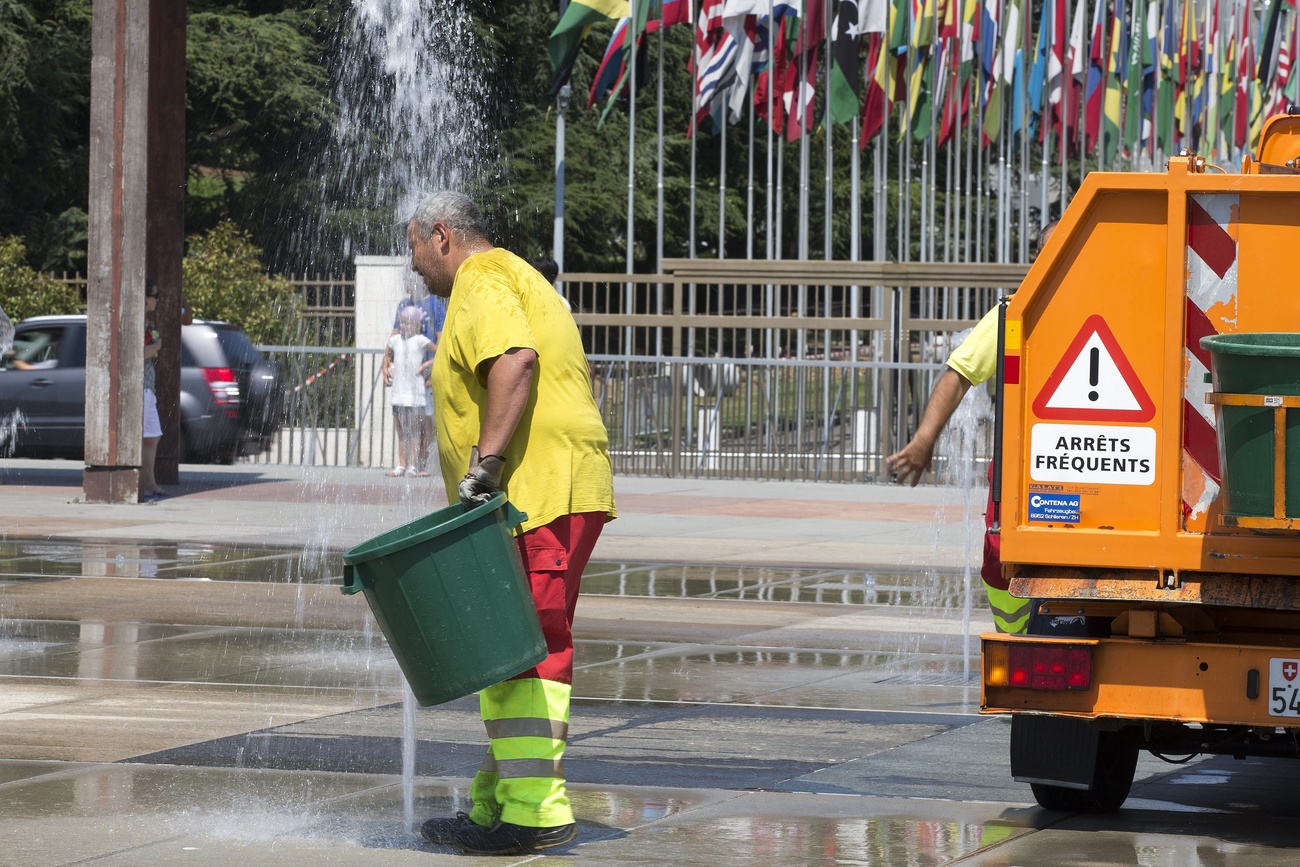
More
Switzerland swelters as temperature hits 36°C in Geneva
More

In compliance with the JTI standards
More: SWI swissinfo.ch certified by the Journalism Trust Initiative































You can find an overview of ongoing debates with our journalists here . Please join us!
If you want to start a conversation about a topic raised in this article or want to report factual errors, email us at english@swissinfo.ch.